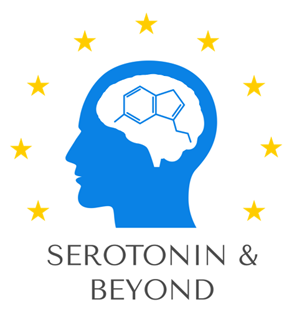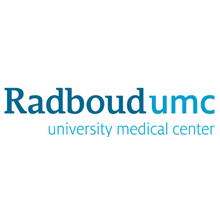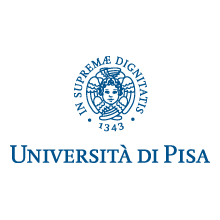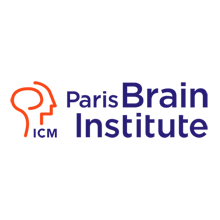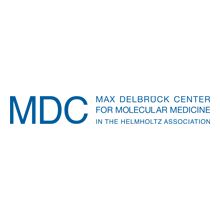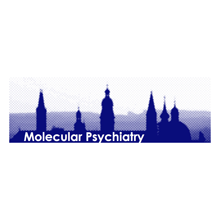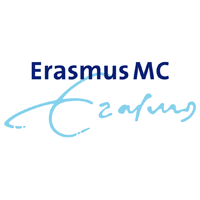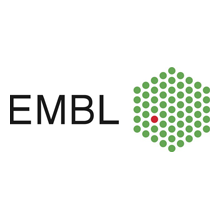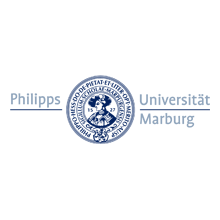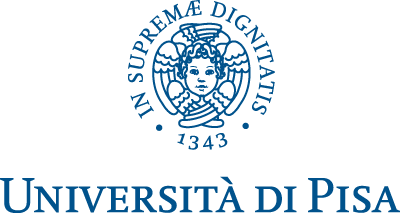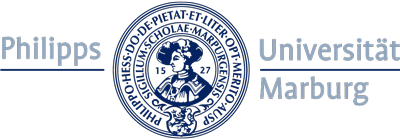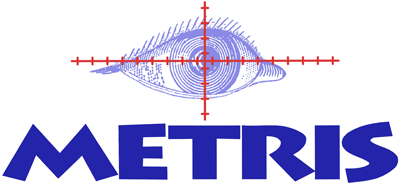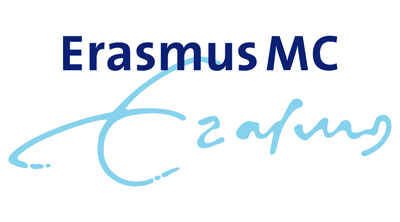Radboudumc
Presentation
Radboudumc and the Donders Institute for Brain, Cognition and Behaviour are a leading Dutch institute for medical research, with several groups specialized in top-level clinical care and research in ASD, ADHD, ID and related neuropsychiatric disorders. Over 600 researchers work at the Donders Institute on unravelling the mechanisms underlying normal and altered brain function. Our research includes cognition and behaviour in humans as well as on the neuronal substrate, including the genetic, molecular and cellular processes that underlie cognition and behaviour. We cover the full spectrum of research ‘from Molecule to Man’.
Role in the project
The Department of Cognitive Neuroscience will be an important partner in WP3, which focuses onthe role of the environment in raphe-PFC development and the translation of results between species (animal and human). Within the Department, the Homberg lab employs basic and complex behavioural and cognitive assays for rodents, and combines this with (non)invasive brain measurements and manipulations as well as ex vivo histological and molecular approaches to link behaviour to brain mechanisms.
Website
Key personnel

Prof. Judith Homberg
Judith Homberg coordinates the project and supervises ESR 14 and co-superpervises ESR 7 and ESR 10

Prof. Jan Buitelaar
Co-supervisor ESR14

Dr. Jurriaan Zwier
Grant manager
Donders Centre for Neuroscience
Presentation
At the Donders Centre for Neuroscience (DCN) of the Radboud University we aim to understand the complex (developing) neural networks underlying perceptual, motor and cognitive brain functions. We study these networks by employing experimental as well as computational approaches. DCN is part of the umbrella institute Donders Institute for Brain, Cognition and Behaviour which is a world-class interfaculty research centre that fosters a collaborative, multi-disciplinary, supportive research environment with a diverse international staff.
Role in the project
The Department of Molecular Neurobiology will be an important partner in WP2, which focuses on defining the role of serotonin in postnatal raphe-PFC network maturation. Within the Department, the Kolk lab combines state-of-the-art functional assays (e.g. in utero electroporation, explant assays, brain organoids) with various molecular approaches to unravel molecular/cellular underpinnings of developing brain areas.
Website
Key personnel

Assoc. Prof. dr. Sharon Kolk
Supervisor ESR 7
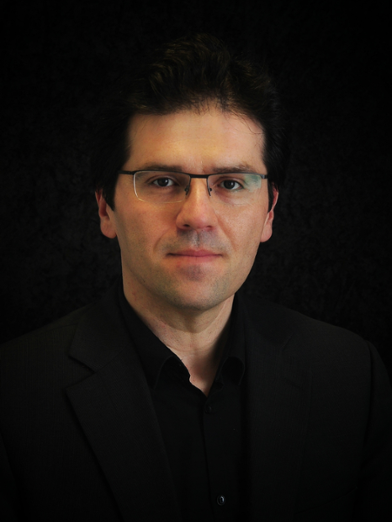
Prof. dr. Tansu Celikel
Supervisor ESR 10
University of Pisa
Presentation
The University of Pisa (UNIPI) was officially established in 1343. Among its glories is Galileo Galilei, who studied in Pisa and became professor of Mathematics in 1589. The University also counts several Nobel Prize winners among its alumni, including Giosuè Carducci (Literature), Enrico Fermi (Physics) and Carlo Rubbia (Physics), and 2 Fields medallists, Enrico Bombieri and Alessio Figalli (Mathematics). Today the University of Pisa is a prestigious modern centre of teaching and advanced research. It offers 60 undergraduate and 74 postgraduate degree programmes, in all the main areas of knowledge and advanced professional education. The University has 19 doctoral programmes. According to the Shanghai Ranking ARWU 2019, the University of Pisa ranks first among Italian Universities and among the top 150 Universities in the world.
Role in the project
In the S&B project, the Department of Biology at the will be an important partner in WP1, which focuses on shedding light on the diversity of the serotonergic neurotransmission modality on its functional relevance in regulating distinct neuronal targets and behaviours. Pasqualetti (https://people.unipi.it/massimo_pasqualetti/) lab research activity focuses on the role of serotonin in the shaping of the Central Nervous System (CNS), both during development and in adulthood, with a particular regard on how alterations in serotonin homeostasis may perturb brain structure and wiring, leading to a higher susceptibility to neuropsychiatric disorders.
Website
https://www.biologia.unipi.it/en/
Key personnel
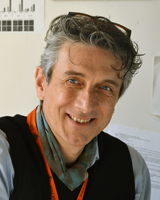
Prof. Massimo Pasqualetti
Supervisor ESR 2
ICM Paris Brain Institute
Presentation
The research team is hosted in an outstanding institute, the ICM, a joint-venture between French public institutions (INSERM, CNRS; Université Pierre et Marie Curie, Assistance Publique – Hôpitaux de Paris) and the private ICM Foundation. The ICM is a new research building located at the heart of la Pitié Salpetrière Hospital, which is one of the largest hospitals in Europe. The ICM occupies 22,000 m2 of laboratory space, and benefits from four research MRIs, an outstanding biological resource center, 600 researchers, engineers and technicians working on-site. Research at ICM is organized in 25 research teams studying the nervous systems at micro-, meso- and macro-scales, focusing on basic, translational and clinical research (http://www.icm-institute.org for details). Importantly, the ICM is located in Paris, which hosts an outstanding community of neuroscientists, within the >20 academic institutions located in the Paris metropolitan area. For Ph.D. training, the ICM is affiliated to the graduate program Ecole Doctorale Cerveau Cognition Comportement (ED3C), part of Sorbonne Université.
Role in the project
In addition to the above-mentioned brain imaging infrastructures, and more relevant for this research program, the Institute harbors state-of-the-art technical facilities: Cell Culture; Sequencing and genotyping; Microscopy (electron microscopy, advanced confocal and multi-photon microscopy, image analysis); Vectorology; Multi-species animal research facility, equipped with surgery and experimental rooms for microsurgery and behavior. In particular, the host lab is fully equipped with all the necessary infrastructure and equipment to carry out the proposed work: 1) An electrophysiological rig for in vivo (awake) recordings (patch and LFP); 2) A 2-photon rig for in vivo (awake) experiments equipped with resonant scanners and dual scan-head for photo-stimulations; 3) Four patch-clamp rigs for multiple (up to four simultaneously) patch clamp recordings in acute slices; 4) A Neurolucida setup for morphometric quantifications and reconstructions; 5) A wet lab for immunohistochemistry and molecular biology preparations.
Website
https://www.icm-institute.org/
Key personnel

Dr. Patricia Gaspar
Co-supervisor ESR 3
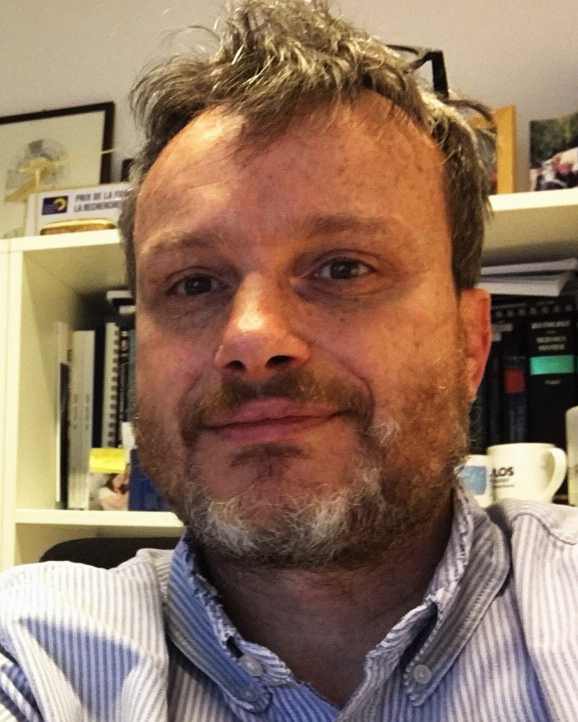
Dr. Alberto Bacci
Co-supervisor ESR 3

Dr. Nicolas Renier
Supervisor ESR 4
Universitätsklinikum Würzburg
Presentation
The Division of Molecular Psychiatry with the Research Unit on Disorders of Neurodevelopment and Cognition in conjunction with the Laboratory of Translational Neuroscience as part of the Center of Mental Health at the UKWürzburg (UKW) is leading in its field with an outstanding track record in psychiatric neuroscience research at the boundary between molecular genetics, cellular neurobiology, and behaviour. Interdisciplinary and translational research strategies are employed to elucidate the pathogenesis of neurodevelopmental and a wide spectrum of life-spanning psychiatric disorders, ranging from depression and anxiety, psychotic (schizophrenia spectrum) and neurodegenerative disorders, to attention-deficit/hyperactivity, autism spectrum and substance use disorders. Mechanisms of pharmacologic and psychotherapeutic treatments are studied. Each approach to study the pathophysiological mechanisms is using cutting edge and innovative methodology. Moreover, there is an increasingly successful track record in the search for functionally relevant common and rare variation in risk genes for psychiatric disorders by conducting genome-wide association studies and whole-exome/ genome sequencing in large cohorts and multiplex families segregating various unique neurodevelopmental disorders and psychiatric syndromes. Finally, the areas of convergence between the fields of neuropsychology, psycho- and neurobiology as well as child, adolescent and adult psychiatry are strengthening the connections between the individual disciplines by establishing and maintaining research groups, who are investigating mutual topics. In that, a unique environment for the study of the molecular and neural foundations in the etiopathogenesis and long-term course of neuropsychiatric disease has been put into practice. The overarching aim is to find pathways to “precision medicine” for psychiatry through understanding molecular and neuronal pathomechanisms of common disorders. Specifically, the goal comprises 1) a translational axis for endophenotypic profiling of neurodevelopmental/ psychiatric disease in behavioural, (epi)genetic and neurophysiologic terms, and 2) a platform for the elucidation of pathogenetic brain mechanisms and thereby the development of personalized therapies for neurodevelopmental/ psychiatric disease and their comorbidities.
Role in the project
Until a few years ago, it was not possible to investigate developmental processes in humans. This changed with the discovery that organoids can be generated from iPSCs. ESR5 will study the development of organoids, specifically the proliferation, differentiation and outgrowth of neurons generated from iPSCs derived from healthy human volunteers carrying serotonergic gene variants. Also the effects of SSRIs on these read-outs are studied. Multiple lines of evidence link allelic variation of serotonergicgene to a wide spectrum of neuropsychiatric disorders characterized by compromised social cognition and emotion regulation, such as anxiety disorders and depression.
Website
http://www.molecularpsychiatry.ukw.de
Key personnel

Prof.dr. Klaus-Peter Lesch
Supervisor ESR 5

Maria Vitale
PhD student

Hsing-Ping Ku
PhD student
Max Delbrück Center for Molecular Medicine
Presentation
The Max Delbrück Center for Molecular Medicine (MDC) is an internationally renowned biomedical research center in Berlin. It is named after Max Delbrück, one of the founders of modern genetics and molecular biology. It is one of 18 research institutions of the Helmholtz Association of German Research Centers, the largest research organization in Germany. The MDC is devoted to biomedical research with the aim of understanding the molecular basis of health and disease and translating findings as quickly as possible into clinical applications. Better prevention, diagnosis and treatment of diseases are the ultimate goals.
Role in the project
In the S&B, MDC projects will contribute to the fundamental understanding of how serotonin modulates the development of the raphe-prefrontal cortex circuit during the perinatal period and postnatal maturation (WP2 and WP3) and optimize analytic tools based on LC-MS to measure serotonin metabolites (WP4) in collaboration with an industrial partner. The PhD projects offered by MDC aim to evaluate the role of the extraembryonic serotonin sources (such as maternal and placental supply during embryogenesis) and also serotonin produced during pre- and early postnatal development on prefrontal cortex maturation and function. We will take advantage of mouse and rat animal models with genetic modifications of the serotonergic system to dissect the involved cellular and molecular pathways and to evaluate how alterations in different components of serotonergic signaling during development affect behavior and metabolic regulation in adult life.
MDC is actively involved in the training program by providing courses on “Statistics, SPSS & Biostatistics” and “Communication to media and public” including “Communicating Animal Research” to teach how to communicate this sensitive topics to a broad audience. MDC will also run a workshop “Generation of genetically-modified animal models using a CRISPR/Cas9 platform”, which provides the theoretical and practical knowledge regarding the generation of genetically modified mice and rats.
Website
Key personnel
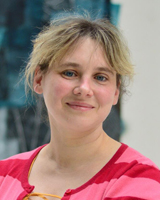
Dr. Natalia Alenina
Co-supervisor ESR 1 and ESR 6
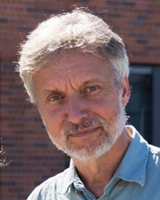
Prof.dr. Michael Bader
Co-supervisor ESR 1 and ESR 6
European Molecular Biology Laboratory
Presentation
The European Molecular Biology Laboratory (EMBL) is an intergovernmental organisation supported by 27 member states with a mission to promote cooperation among European countries in fundamental molecular biology research. EMBL maintains six research centers in five countries and the EMBL Rome site is focused on the study of Epigenetics and Neurobiology using in vivo molecular genetic approaches in mammalian model systems. The EMBL PhD program is considered one of the most competitive programs in Europe and has served as a model for international research graduate programs at countless institutions across the world.
Role in the project
The expression of instinctive behaviors related to ingestion, reproduction, and defense depend on evolutionarily ancient behavioral circuits located in the hypothalamus. It has been proposed that neural activity in these hypothalamic circuits encodes an internal motivational state that is essential for the expression of instinctive behavior and may be related to the emotion that accompanies instinctive urges in humans. However, the precise brain nuclei and circuit logic that support instinctive physiological and behavioral responses remain poorly defined. Moreover, although instinctive behaviors are innate, animals are to some degree able of control them to adapt their behaviors to their environment. Little is known about the plasticity mechanisms involved in such instinct control and how maladaptation of these behaviors, a major hallmark of psychiatric disorders, might arise. We are interested in understanding how the neuromodulator serotonin mediates or limits the plasticity of instinctive behaviors. We will ask questions about which classes of serotonin neurons enervate instinctive behavior control regions, what features of sensory and motor states are encoded in the firing of serotonin neurons, and how this information modulates relevant internal states and behavioral outputs. Our central hypothesis is that serotonin is critical for modulating synaptic plasticity that drives the adaptation of social behaviors and that understanding its impact will require the careful examination of ethological behaviors that are relevant to the natural social environment of the species studied. Our approach will combine molecular genetics, in vivo single cell electrophysiology and calcium imaging, optogenetics, pharmacogenetics, and ethological behavior testing to understand how serotonin controls adaptation to social experience.
Website
https://www.embl.org/research/units/epigenetics-neurobiology/
Key personnel

Dr. Cornelius Gross
Supervisor ESR 9
University of Oxford
Presentation
The University of Oxford, UK, enjoys an international reputation as a centre of world-class research and teaching. It employs over 10,000 staff and has a student population of over 21,000. Oxford is one of Europe’s most innovative and entrepreneurial universities. The University of Oxford will be represented by the Department of Pharmacology (https://www.pharm.ox.ac.uk), which is among the UK’s top-ranked departments in biomedical sciences, with long-term commitments to excellence in research and teaching in pharmacology and neuroscience.
Role in the project
The Department of Pharmacology is at the forefront of research into the effects of drugs and other molecules on biological systems with a view to understanding the mechanisms of the human body. Pre-clinical research in the Department aims to examine cellular and molecular pathways in living systems as the first step towards a greater understanding of disease and effective treatment.
Website
Key personnel
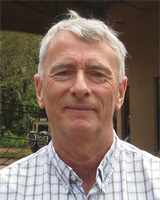
Prof. Trevor Sharp
Supervisor ESR 8
Neurobiology Research Unit (NRU) at Copenhagen University Hospital Rigshospitalet
Presentation
The Neurobiology Research Unit (NRU) at Copenhagen University Hospital Rigshospitalet in Denmark conducts translational neuroscience research with the aim to promote preventive, diagnostic, and therapeutic advances. We make use of neuropsychological and behavioral assessments combined with MRI, PET, SPECT and EEG in humans to investigate basic neurobiological mechanisms in the healthy brain and brain disorders, as well as neuropharmacological effects on the brain. Advanced image processing and statistical methods are applied to our data. We also use animal and cell models to bring pre-clinical discoveries into healthy volunteers and patients as early as possible.
Role in the project
At S&B, we aim to leverage existin data from a world latest database of integrated molecular brain imaging to determine if environment-induced epigenetic modifications of the 5-HTT gene are associated with key pre- and postsynaptic markers of serotonergic neurotransmission and brain structure in the adult brain and if epigenetic changes in serotonin signalling affect responsivity to antidepressant SSRI treatment in a depressed population followed across pharmacological treatment.
Website
Key personnel

Prof. Gitte Knudsen
Co-supervisor ESR 13

Assoc. Prof. Vibe Frokjaer
Principal investigator and main supervisor in ESR13
Universität Marburg
Presentation
The Philipps-University of Marburg boasts a long tradition of ground-breaking research and high-quality education. Founded in 1527, it offers excellent teaching in a wide range of subjects in a total of 16 faculties to its approximately 24.000 students. Trendsetting topics with high relevance for society include research on highly pathogenic viruses, microorganisms, climate change, and neuropsychiatric disorders. The Philipps-University of Marburg offers tailored training programs for doctoral and post-doctoral students that supplement their regular academic programs, providing them the range of skills required for successful careers in academia and industry. The Faculty of Psychology has a strong research focus on experimental and biological psychology. Its behavioral neuroscience facility includes a rat laboratory with behavioral test rooms fully equipped with a broad range of behavioral paradigms and tools for assessing autism-related behavioral phenotypes and neurobiological correlates through electrophysiology, stereology, and molecular biology. Research on behavioral neuroscience is embedded in a rich interdisciplinary network of national and international collaborations.
Role in the project
In S&B, UMR is leading work package 3 Translation. Human and animal studies have shown that serotonergic genetic variances, pre-/perinatal SSRI exposure and the environment substantially shape brain structure/function, behaviour and cognition. However, we do not know to what the underlying serotonin-mediated neurodevelopmental changes are, and how these are influenced by environmental stimuli. To address these issues we will investigate how negative and positive environmental factors influence rodents PFC function, behaviour and cognition. We will also elucidate during which critical window in life environmental factors most strongly influence serotonin-mediated developmental changes.
Website
https://www.uni-marburg.de/de/fb04
Key personnel

Prof. dr. Markus Wöhr
Supervisor ESR 11
Metris
Presentation
Metris is a trendsetter in equipment for automated analysis of laboratory animal behavior, ultrasound vocalizations and cognition. Metris equipment is used by most of the top 50 pharma companies and many leading academic institutes in more than 60 countries around the world. The primary goal of Metris is to enable high-throughput, non-invasive, home cage analysis of rodent behavior for a wide range of assays. Metris was the first company in the mid 90’s to offer equipment for fully automatic recognition of both normal and stereotypical behaviors in rodents using force plate analysis (LABORASTM). In 2017, Metris introduced automated call classification as part of its Ultrasonic Vocalization (USV) measurement system (SonotrackTM), enabling recognition of 15 different types of vocalizations in mice. More recently, Metris developed a novel touchscreen cage allowing cognitive research in a home cage environment.
Role in the project
In the S&B project, Metris BV will be an important partner in WP4, which focuses on the development of state of the art technologies to improve the understanding of the role of serotonin in neurodevelopment and the translation of rodent-derived behavioural data to humans. Metris will refine its prototype touchscreen home cage allowing the researcher to combine touchscreen tasks and automated behavior analysis in rodents (LABORASTM) swiftly in a stress-free environment. Novel cognitive tasks will be added that resemble tasks measuring human cognitive functions.
Website
Key personnel
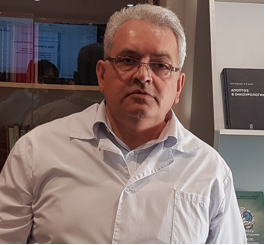
Dr. Levon Bachdasarian

Ronald Bulthuis
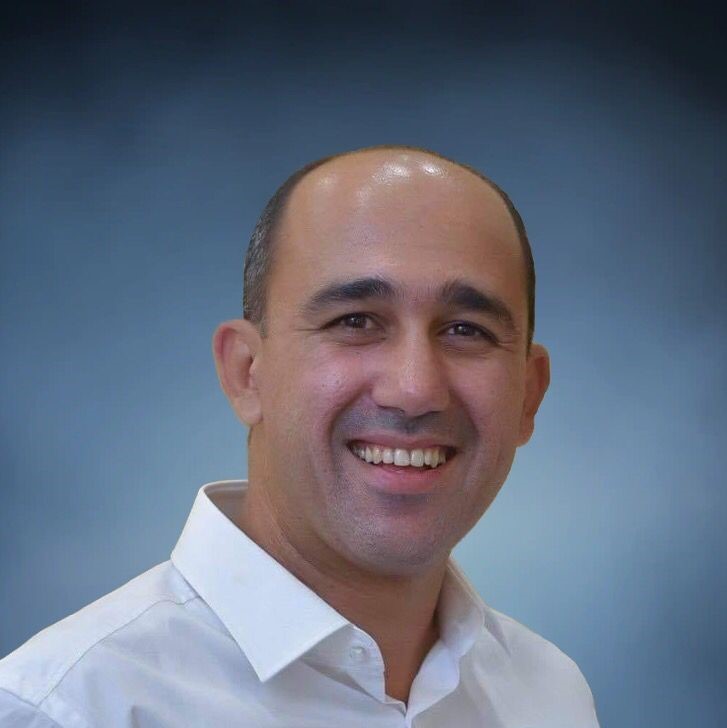
Prof Dr Konstantin Yenkoyan
Position
Scientist-in Chief and Head of Neuroscience Laboratory COBRAIN, Yerevan State Medical University, Armenia. Cosupervisor and host of ESR during his secondment.
Erasmus MC
Presentation
Erasmus MC is an international leading academic hospital. Erasmus MC staff, volunteers and students work with passion and dedication to achieve a safe, first-rate healthcare for patients with complex disorders, rare conditions or acute needs. Erasmus MC is recognized as a world-class scientific research organization aiming to improve our understanding of diseases and disorders and helps to predict, treat and prevent them.
Role in the project
In the S&V project, the Department of Child and Adolescent Psychiatry will be an important partner in WP3, which focuses on how serotonin-mediated developmental changes translate to transdiagnostic alterations in behavior and cognition. In addition, the Department of Child and Adolescent Psychiatry will provide the psychiatric epidemiology course which will cover basic concepts common to child and adult psychiatric epidemiology and challenges of longitudinal studies, the role of risk and resilience, and genetic epidemiology.
Website
Key personnel

Prof. dr. Hanan El Marroun
Co-supervisor ESR 12
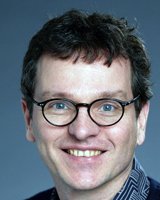
Prof. Henning Tiemeier
Co-supervisor ESR 12
